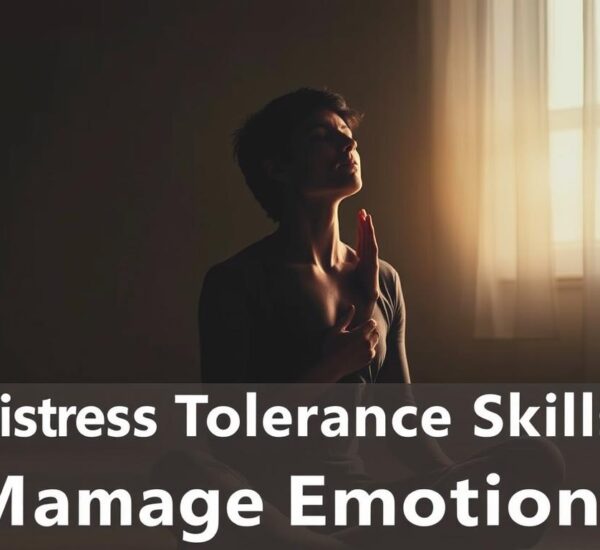Finding the right mental health support is key to healing. With more awareness, many resources are now available. They help those in need.
The National Institute of Mental Health says many mental health services are out there. You can find hotlines, treatment, and support groups. It’s important to find what fits your needs.
We’ll dive into these resources in detail. Our goal is to give you a guide to help you choose the right mental health path. We want to help you find the support you need.
Key Takeaways
- Many mental health resources are available, including hotlines and support services.
- The National Institute of Mental Health provides valuable information on mental health services.
- Understanding your needs is key to finding the right mental health support.
- There are many treatment options for different mental health conditions.
- Support groups are important in the recovery process.
Understanding Mental Health and Its Importance
Mental health is key to our overall health. It shapes how we think, feel, and act. It affects our relationships, work, and happiness.
What is Mental Health?
The Substance Abuse and Mental Health Services Administration (SAMHSA) says mental health is being well. It means we can handle life’s stresses, work well, and help our community. This shows mental health is about living a good life.
Mental health is more than just not being sick; it’s about thriving. It covers our emotions, mind, and social life. Good mental health helps us face challenges, build strong bonds, and contribute to society.
The Impact of Mental Health on Daily Life
Mental health shapes our daily lives. Good mental health means we’re productive, have strong relationships, and enjoy life more.
Here’s how mental health affects our lives:
| Aspect of Life | Positive Mental Health | Poor Mental Health |
|---|---|---|
| Productivity | Ability to work efficiently and effectively | Reduced productivity, absenteeism |
| Relationships | Strong, supportive relationships | Strained or broken relationships |
| Physical Health | Better physical health, healthy habits | Poor physical health, unhealthy habits |
Using online therapy and mental health tools helps keep our mental health strong. These tools offer support and ways to handle mental health issues, improving our well-being.
Knowing how important mental health is helps us take care of it. We can seek help when needed. Having access to wellness resources and support is key to a society that values mental health.
Types of Mental Health Resources Available
Knowing about the many mental health resources out there is a big step towards feeling better. These resources help in many ways, from professional help to community support and online tools.
Professional Mental Health Services
Professional mental health services are key to feeling better. They include therapy, counseling, and psychiatric care. Therapy options range from cognitive-behavioral therapy (CBT) to psychodynamic therapy, each for different needs.
To find mental health resources near me, start with your doctor for referrals. Or, check with your insurance for in-network services.
Community Support Initiatives
Community support is very important for mental health. Groups like the National Alliance on Mental Illness (NAMI) offer self-care resources. They have support groups, education, and advocacy.
Support groups let people share and learn from others. This helps a lot in facing mental health challenges.
Online Mental Health Tools
The internet has lots of mental health tools now. There are apps for meditation and mood tracking, and online therapy platforms. These options are easy to use and often cheaper.
- Mental health apps that offer stress management techniques
- Online therapy platforms that connect individuals with licensed therapists
- Virtual support groups for those who prefer online communities
In summary, there are many mental health resources today. They meet different needs and preferences. By using these resources, people can improve their mental health a lot.
How to Identify Your Mental Health Needs
To tackle mental health, we first need to know what we need. This involves checking ourselves and getting help from experts. Knowing our needs helps us find the right support.
Assessing Your Mental Well-Being
Checking our mental health is key. The National Institute of Mental Health says we can do this by watching our mood, energy, and stress handling. We should pay attention to how we feel and act every day.
Some important things to look at include:
- Mood swings and emotional stability
- Energy levels and motivation
- Ability to handle stress and anxiety
- Sleep patterns and overall physical health
By keeping an eye on these, we can better understand our mental health.
| Aspect | Indicators of Good Mental Health | Indicators of Poor Mental Health |
|---|---|---|
| Mood | Stable, positive mood | Frequent mood swings, persistent sadness |
| Energy Levels | Adequate energy for daily tasks | Chronic fatigue, lack of motivation |
| Stress Coping Mechanisms | Effective stress management | Difficulty managing stress, anxiety |

Consulting with Healthcare Professionals
While checking ourselves is helpful, talking to doctors is key. They can give us a real diagnosis, suggest treatments, and offer support.
Benefits of Consulting Professionals:
- Accurate diagnosis of mental health conditions
- Personalized treatment plans
- Access to therapy and counseling services
- Ongoing support and monitoring
By combining self-checks with expert advice, we get a full picture of our mental health needs.
Utilizing Therapy and Counseling
Seeking therapy and counseling is a proactive step for better mental health. It can feel empowering yet scary. But, it’s key to keeping your mind healthy. Therapy and counseling offer a safe space to talk about feelings, understand behaviors, and find ways to cope.
Therapy isn’t for everyone; it comes in many forms. Different therapeutic approaches help with various mental health issues. This includes anxiety, depression, relationship problems, and trauma.
Different Types of Therapy
There are many types of therapy, each with its own benefits. Here are a few:
- Cognitive Behavioral Therapy (CBT) helps change negative thought patterns.
- Psychodynamic Therapy looks into the reasons behind emotions and actions.
- Family Therapy brings the whole family together to improve communication and solve conflicts.
- Group Therapy offers a supportive community where people share and learn from each other.
Finding the Right Therapist
Finding the right therapist is key for effective therapy. Use resources like the American Psychological Association’s (APA) directory of psychologists. It helps you find therapists by location, insurance, and specialty. Think about the therapist’s approach, experience, and how well you connect with them.
By choosing the right therapist and going to therapy, you can learn a lot about your mental health. You’ll develop coping strategies and improve your overall well-being.
Support Groups: A Community Approach
Support groups are a safe place to share and find comfort. They help manage mental health by connecting people with similar challenges. This community approach is key for mental well-being.
Being part of a support group gives us a sense of belonging. It’s important for our mental health. We learn from others and find support, which helps us on our mental health journey.
Benefits of Joining Support Groups
Support groups offer emotional support, education, and a sense of community. They help us develop self-care resources and learn from others facing similar issues.
They also provide a chance to discuss therapy options and hear about different approaches.
- Emotional support from those who get it
- Learning about mental health topics
- Finding a sense of community
How to Find a Local Group
Finding a local support group is easy if we know where to look. Organizations like the National Alliance on Mental Illness (NAMI) offer groups for those affected by mental illness.
To find a group near us, search online for “mental health resources near me” or “NAMI support groups.” We can also reach out to local mental health organizations or healthcare providers for suggestions.
Combining support groups with other therapy options and self-care practices helps manage mental health. This integrated approach boosts our well-being and gives us the tools to handle mental health challenges.
Online Mental Health Platforms
In today’s digital world, online mental health platforms are key for those looking for mental health support. They offer many services and tools to help people on their mental health journey.

Having easy access to mental health resources is vital. Online platforms are a great option, being more accessible than traditional services. They’re perfect for those in remote areas or with mobility issues.
Popular Mental Health Apps
Many mental health apps are popular because they’re effective and easy to use. Some top ones are:
- Moodfit: It tracks your mood and gives personalized advice.
- Calm: It offers guided meditation and sleep stories for relaxation.
- Headspace: It has various meditation and mindfulness exercises.
These apps help with stress, mood, and more. The Substance Abuse and Mental Health Services Administration has a list of mental health apps. It’s a great place to find online support.
Benefits of Virtual Support
Virtual support platforms have many advantages, including:
- Accessibility: You can get support anytime, anywhere.
- Anonymity: Online support can be easier to share personal struggles with.
- Cost-effectiveness: Online resources are often cheaper than in-person therapy.
Using online mental health platforms helps us take care of our mental health. As we face mental health challenges, knowing these resources are there is comforting.
Crisis Resources for Immediate Help
When you’re in a crisis, quick help is vital. Mental health emergencies can happen anytime. It’s key to have resources ready to offer urgent support.
Crisis resources aim to provide immediate aid. They help people get through tough times. This support is essential for navigating difficult situations.
National Suicide Prevention Lifeline
The National Suicide Prevention Lifeline is always there for you. Call 1-800-273-TALK for help. You’ll talk to experts who can guide you.
This service is free and keeps your call private. It’s a lifeline for those in crisis.
Crisis Text Line
The Crisis Text Line offers help via text. Text HOME to 741741 to connect with a counselor. They’re ready to help 24/7.
This service is also private. It’s a safe space to talk about your feelings.
Online therapy and mental health tools are also important. They offer ongoing support and help you cope. Using wellness resources like mindfulness can also help keep your mind healthy.
We urge everyone to know about these resources. If you need help, don’t hesitate to reach out. Together, we can support mental health and well-being.
Mental Health Resources for Specific Populations
Children and veterans need special mental health help. Mental health is key for everyone’s well-being. But, different groups have unique needs that need special care.
For kids and teens, early help is vital. The National Institute of Mental Health has resources for them. They cover anxiety, depression, and more.
Resources for Children and Teens
Young people face special mental health challenges. Self-care resources and therapy options are vital for them. Parents and caregivers can find help online or through doctors.
- Access to counseling services in schools
- Online therapy platforms designed for youth
- Support groups for parents and teens
Support for Veterans
Veterans deal with unique mental health issues like PTSD and depression. They need special mental health help. Organizations offer counseling and therapy just for them.
| Population | Mental Health Resources | Key Features |
|---|---|---|
| Children and Teens | School counseling, online therapy platforms | Early intervention, tailored therapy |
| Veterans | Veterans’ support groups, PTSD counseling | Specialized therapy, community support |
Understanding the mental health needs of different groups helps us support them better. We must keep pushing for mental health resources that meet the needs of various communities.
Building a Personal Mental Health Toolkit
Modern life can be tough, but having a mental health toolkit helps. It’s not a one-size-fits-all thing. Instead, it’s a set of strategies and practices made just for you.
Self-Care Strategies and Practices
Self-care is key to any mental health toolkit. It’s about doing things that help you relax and lower stress. Effective self-care practices can be different for everyone. They might include exercise, eating well, and getting enough sleep.
For example, regular exercise can boost your mood and cut down on anxiety. You can also try deep breathing, progressive muscle relaxation, or mindfulness meditation. These can calm your mind and lower stress. For more tips on managing stress, check out our article on mental health tips for work-life harmony.
Mindfulness and Stress Reduction Techniques
Mindfulness and stress reduction are important for your mental health toolkit. The American Psychological Association (APA) says mindfulness can help manage stress and emotions. Practices like mindfulness meditation and yoga can help you stay focused and handle life’s ups and downs.
- Mindfulness meditation helps you stay in the present moment, away from worries about the past or future.
- Yoga combines movement with deep breathing to help you relax and reduce stress.
- Journaling can also be helpful, letting you work through your thoughts and feelings.
By adding these strategies to your daily life, you can create a strong mental health toolkit. It’s about finding what works for you and making it a regular part of your routine.
The Role of Medication in Mental Health
Understanding how medication helps with mental health is key. It’s a big part of treating many mental health issues. It can make symptoms better and improve life quality.
Understanding Psychiatric Medications
Psychiatric medications work by changing the brain’s chemistry. The National Institute of Mental Health has lots of info on these meds. It talks about their uses, side effects, and how they work with other meds. Remember, these meds can affect people differently.
How to Work with a Doctor on Medication Management
Managing meds well needs teamwork between you and your doctor. Open communication is key. Talk about your symptoms, worries, and any changes in your mental health.
It’s important to ask your doctor about your meds. This includes dosage, side effects, and how it works with other treatments like online therapy or mental health tools. Working together, you can find a treatment plan that works for you.
Also, adding wellness resources to your treatment can help a lot. This could be therapy, support groups, or self-care. These can help along with medication when needed.
Finding Continued Support and Education
As we journey through our mental health, having ongoing support and education is key. This helps us keep our mental health in check and tackle any new challenges. We can find many resources, like workshops and seminars, to learn more about mental health and self-care.
Educational Programs and Workshops
Groups like the National Alliance on Mental Illness (NAMI) offer great education and workshops. These are for people and families dealing with mental health issues. They provide a safe place to learn from experts and meet others who understand.
By joining these programs, we can better understand mental health. We also learn how to cope with it.
Ongoing Learning and Therapy Options
There are also online resources and therapy options to support our mental health. By exploring these, we can build a personal mental health toolkit. To find resources near us, we can search online or ask healthcare professionals for advice.



